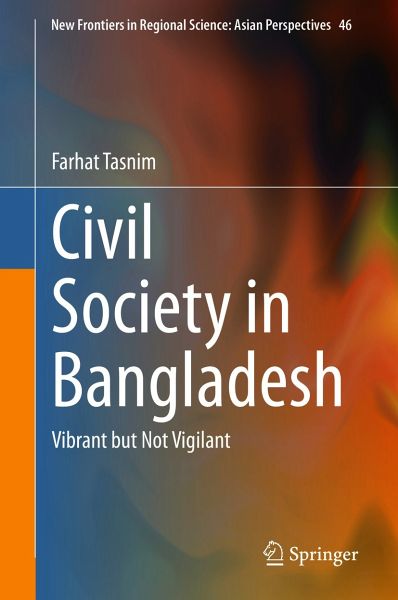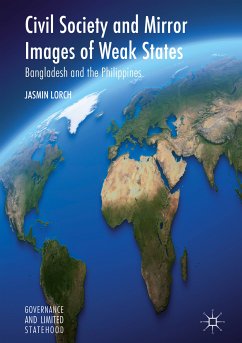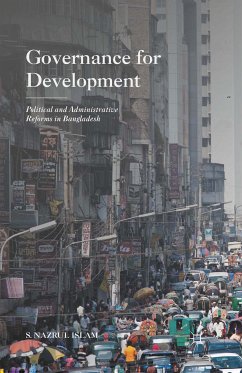
Civil Society in Bangladesh (eBook, PDF)
Vibrant but Not Vigilant
Versandkostenfrei!
Sofort per Download lieferbar
96,95 €
inkl. MwSt.
Weitere Ausgaben:

PAYBACK Punkte
48 °P sammeln!
This book is the first of its kind to offer an understanding, analysis, and prediction of the state of civil society in Bangladesh in relation to development and democracy. It is a research attempt to reveal the paradox found in developing countries like Bangladesh where there are numerous and active civil society organizations (CSOs) that have had almost no influence in consolidating democracy. This book, however, also qualifies the normative assumption on the positive relationship between civil society and democracy asserted by the mainstream neo-Tocquevillean School that has a profound infl...
This book is the first of its kind to offer an understanding, analysis, and prediction of the state of civil society in Bangladesh in relation to development and democracy. It is a research attempt to reveal the paradox found in developing countries like Bangladesh where there are numerous and active civil society organizations (CSOs) that have had almost no influence in consolidating democracy. This book, however, also qualifies the normative assumption on the positive relationship between civil society and democracy asserted by the mainstream neo-Tocquevillean School that has a profound influence on donor policies. Readers are introduced to civil society in Bangladesh from a broad perspective. Rather than confining the analysis to NGOs, chapters explore the origin, nature, and function of both modern and conventional CSOs, which helps to provide a more authentic understanding of the genuine state of civil society in relation to other actors in the political system. Combining survey data analyses and empirical observations with carefully chosen case studies, the book reveals that CSOs participate very actively in social services. This research also reveals that these highly active CSOs in the field of social development lack the necessary attributes for ensuring participation, proper interest articulation and monitoring of the state. Through systematic analysis, the book shows that political structures-and for Bangladesh, particularly political parties-along with vertical social relationships such as clientelism, patronage, nepotism, and corruption have contributed to a non-vigilant civil society in Bangladesh, although it often is spoken of in different terms. This book is highly recommended for researchers, students, and development practitioners interested in South Asia as well as in understanding the potentials and limitations of civil society in relation to development and democracy.
Farhat Tasnim's book is a comprehensive treatment of civil society in Bangladesh. It will serve as a useful resource for future researchers in this field for a long time to come.
Harry Blair, Yale University, USA
Farhat Tasnim provides in this book a new perspective on one of the essential cases of civil society study, Bangladesh. Her penetrating analysis of the relationship of civil society organizations and democracy in Bangladesh should attract a wide readership. This is an important book not only for students of Bangladesh, but for scholars and practitioners interested in the relationship of civil society organizations and democracy.
Robert J. Pekkanen, University of Washington, USA
Farhat Tasnim's book is a comprehensive treatment of civil society in Bangladesh. It will serve as a useful resource for future researchers in this field for a long time to come.
Harry Blair, Yale University, USA
Farhat Tasnim provides in this book a new perspective on one of the essential cases of civil society study, Bangladesh. Her penetrating analysis of the relationship of civil society organizations and democracy in Bangladesh should attract a wide readership. This is an important book not only for students of Bangladesh, but for scholars and practitioners interested in the relationship of civil society organizations and democracy.
Robert J. Pekkanen, University of Washington, USA
Dieser Download kann aus rechtlichen Gründen nur mit Rechnungsadresse in A, B, BG, CY, CZ, D, DK, EW, E, FIN, F, GR, HR, H, IRL, I, LT, L, LR, M, NL, PL, P, R, S, SLO, SK ausgeliefert werden.












